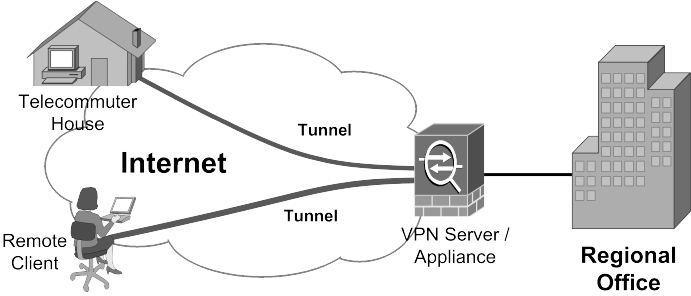Types Of VPN:
There are two common type of VPN,s that are discussed are under:
1. Remote-Access VPN:
A Remote-Access VPN (Virtual Private Network) enables remote users to securely connect to a private network from external locations, such as home offices or public Wi-Fi hotspots. Users initiate a connection using VPN client software, which authenticates their credentials and establishes a secure, encrypted tunnel to the VPN server. This tunnel encrypts all data transmissions between the user’s device and the private network, ensuring confidentiality and integrity. Once connected, remote users gain access to network resources, such as file shares and applications, as if they were physically present on the private network. Remote-Access VPNs provide a secure and convenient solution for enabling remote work while protecting sensitive information from interception or unauthorized access.

2. Site-to-Site VPN:
A Site-to-Site VPN establishes secure and encrypted connections between multiple remote sites or networks over the internet. It creates virtual tunnels between VPN gateways or routers deployed at each site, encrypting all data transmissions to ensure confidentiality and integrity. This allows interconnected networks, such as corporate offices, branch locations, or data centers, to communicate securely as if they were part of the same local network. Site-to-Site VPNs enable seamless connectivity, data sharing, and collaboration across distributed locations, while providing a cost-effective and scalable solution for interconnecting geographically dispersed networks.

